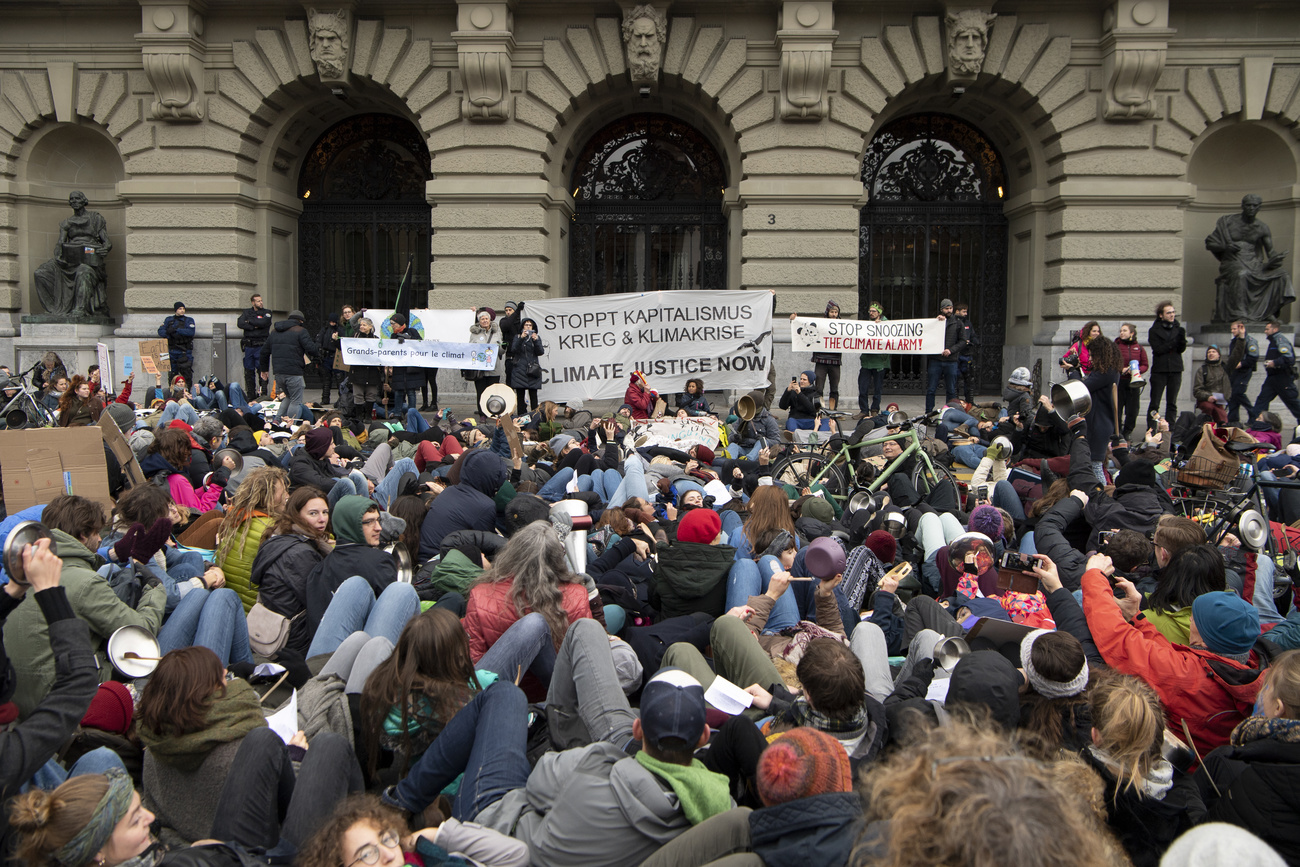
Swiss youths have appetite for political engagement, study shows

Almost three out of four young people would like to participate more in politics, but feel held back by various factors including a lack of information, according to a report published on Tuesday by the Federal Commission for Child and Youth Affairs (EKKJ).
EKKJ president Sami Kanaan said the study rebuffs a perception that young people are not interested in politics. Youth are above all interested in “collective challenges”, he said; climate change, gender equality, and racism are the most pressing issues for them.
Political involvement depends on structural factors such as gender, socio-economic level and education, the report found. Young women and girls participate more than their male peers at the same age, as do young people with higher education.
Conventional political participation, in votes and elections, is the most popular channel for youth involvement. The 18-year-old voting age is thus a barrier for many, as is the need to hold a Swiss passport in order to vote.
Digital political participation via social media is the second most common way young people see themselves getting involved, via online debates. Unconventional forms of engagement are less widespread but also still present – mainly politically motivated behaviour (e.g. boycotts or “conscious” purchases of certain products over others). Unauthorised demonstrations or involvement in social movements were also mentioned in the report.

More
How do you get Swiss youngsters to vote?
The EKKJ says that boosting youth involvement calls for a dual approach: both motivating them directly, but also making adults aware of the need to take their young counterparts serious and listen to them “without paternalism”.
The EKKJ also supports the introduction of the right to vote at 16.
The study, which explored the views of people between the ages of 12 and 27, was carried out by the Zurich University of Applied Sciences (ZHAW) in collaboration with the Valais University of Social Work (HES-SO) and the University of Applied Sciences and Arts of Southern Switzerland (SUPSI).

In compliance with the JTI standards
More: SWI swissinfo.ch certified by the Journalism Trust Initiative































You can find an overview of ongoing debates with our journalists here . Please join us!
If you want to start a conversation about a topic raised in this article or want to report factual errors, email us at english@swissinfo.ch.